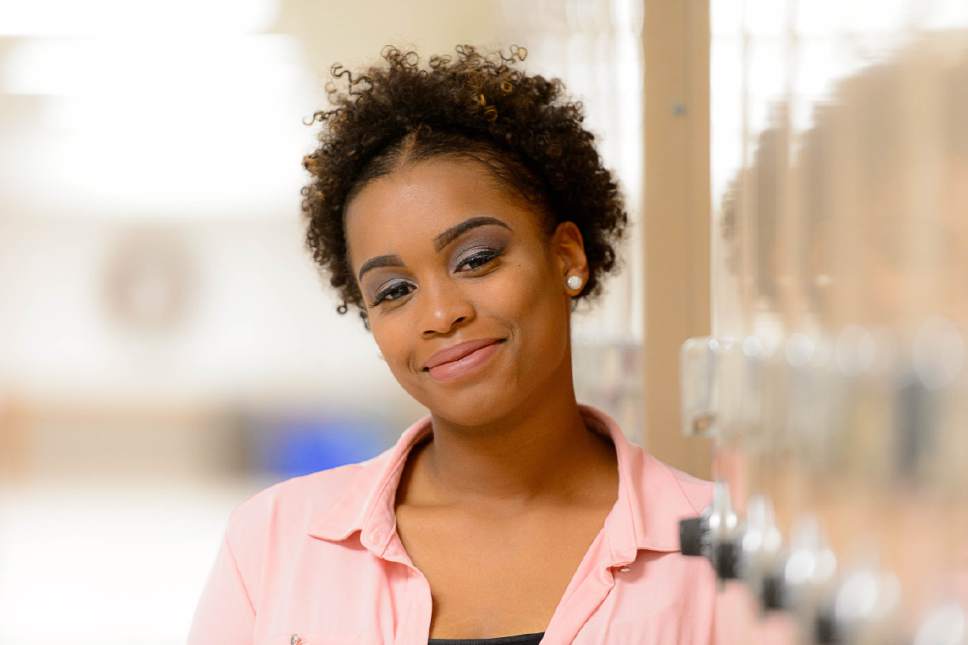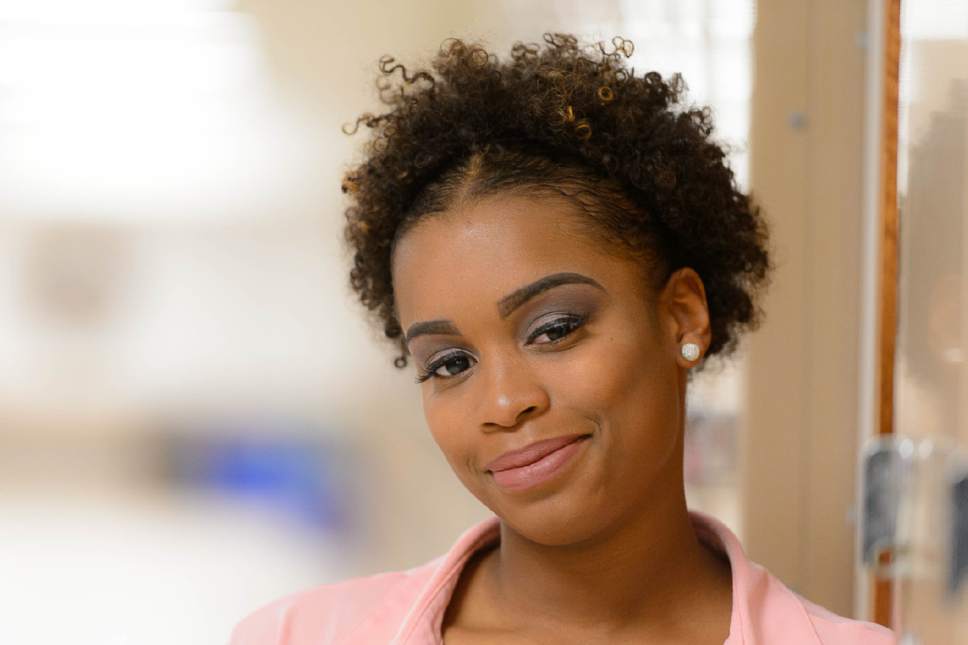This is an archived article that was published on sltrib.com in 2016, and information in the article may be outdated. It is provided only for personal research purposes and may not be reprinted.
Johnisha Demease-Williams had a serious case of culture shock when she arrived at Brigham Young University last fall.
Despite being loaded with thousands of young people who shared the black student's LDS faith, the Provo campus was nothing like the multicultural Mormon congregation in Houston that had nurtured her throughout her childhood and teen years.
In her Texas home, many members were converts from other religious traditions whose backgrounds were understood and celebrated. They seemed more aware and accepting of cultural differences, she says. They knew about world and national events like the police killings of unarmed citizens. Whether or not they embraced Black Lives Matter, they understood what drove the movement.
By contrast, BYU's 325 blacks account for fewer than 1 percent of the 33,000-strong student body, according to spokesman Todd Hollingshead. The university, owned by The Church of Jesus Christ of Latter-day Saints, has two black full-time faculty members (out of 1,252) with continuing status (similar to tenure), three more are on track and three others are adjuncts.
Because blacks make up such a tiny minority at BYU, Demease-Williams says that produces a kind of cultural indifference to their needs.
While chatting with a friend one day, the sophomore psychology major wondered if any white students understood the challenges blacks encounter on campus and whether blacks from various states or countries had the same trouble relating to the majority that she did.
So Demease-Williams grabbed a friend, a microphone and a video camera and attempted to find out.
The result: a nearly 25-minute YouTube film, "The Black Student Experience — BYU."
In the independently made video, Demease-Williams and a couple of other interviewers pose questions to white and black students about hurdles, perceptions, racism, white privilege and dating.
White students suggest that blacks at the school suffer from "low self-esteem," often do not feel accepted at BYU or are chronically uncomfortable.
Three white males say they have not seen any "blatant prejudice" or "outright racism."
Most of the Anglo students interviewed deny that "white privilege" exists, but they do recognize that donning "blackface" is "not chill."
Black students, whether African-American, African or from some other countries, say they have felt at times like "they don't fit" at BYU.
A black male says he was followed around the bookstore by a white woman, who was suspicious of him. Another witnessed a fellow student cross the street to avoid him, the student says. "People make assumptions based on the color of my skin."
A female complains that BYU has few, if any, events to discuss race. "We don't talk about social issues," she says, "because it makes people uncomfortable."
Another says he can't talk to his white friends about Black Lives Matter, worried that they won't understand or that it will cause conflict.
Indeed, several white students respond with the "all lives matter" comment, a couple insisting that it's "important to focus on everybody, not to discriminate against anyone."
An eager white female says Black Lives Matter "is great," though she clearly doesn't know what it is.
"Is that on campus?" she asks the interviewer.
Mormon apostles or other LDS authorities should "do their part to bring up the point that black students might feel isolated," a black male proposes. "They could talk about the difficulties of being a minority at BYU."
The film contains no narration or editorial overlay, reflecting Demease-Williams' desire to let the students speak for themselves. All the answers — save the redundant ones — were used.
The final shot is a statement from Demease-Williams, who thanks all for their participation and declares her hope that the video "spreads awareness and allows for more education about some of the issues that black students face on this campus."
Such understanding "will not happen overnight and the school cannot do it alone," the statement reads. "We must work together to make this school a great environment for all and move to greater heights."
Tamu Smith, a black Mormon mom in Utah County, sees the video as a big step toward helping white students recognize the obstacles BYU's black students must overcome and help black students see that they're not alone.
Coming from more diverse places and Mormon congregations, BYU blacks feel "disconnected from their community," says Smith, co-author of "Diary of Two Mad Black Mormons," "and without their church family."
There are not many adult black mentors at the school, she says, who know what the students are enduring.
Reaction to the film has been overwhelmingly positive, Demease-Williams says, "with a just a few negatives."
She didn't ask participants about the Utah-based faith's former ban on black men and boys being ordained to its all-male priesthood, and women and girls being denied access to LDS temple ceremonies. Leaders lifted those prohibitions in 1978.
The film also doesn't probe the church's 2013 essay "Race and the Priesthood," which explained that the priesthood-temple ban was formalized during the presidency of Brigham Young and influenced by society's racism at the time.
"This was just an introduction," Demease-Williams says. "I am thinking about doing another one next semester."
The conversation, she says, is just getting started.





